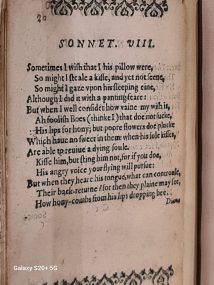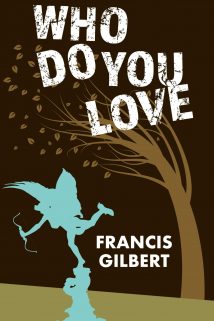Published in
In this section I archive features and articles that have been published elsewhere. I contribute regularly to the national press, including The Times, The Daily Telegraph, The Guardian, and The Daily Mail.
-
8 Ways To Teach spelling, punctuation and grammar
For many, teaching Spelling, Punctuation and Grammar (SPaG) is daunting. The stakes are high, and the weighting on SPaG in exams has raised anxieties. Here are some tried and tested approaches.
-
Teaching 1984 in the surveillance culture of schools
Teaching Orwell’s “1984” as a set text in an examination-obsessed and heavily surveilled school system.
-
Mindfulness and Creative Writing
How mindfulness can be used by creative writers to develop their practice and pedagogy
-
The Teachers’ Standards and English Teaching
Some interesting ideas about educating English teachers in relation to Teaching Standards set in 2012… However, these standards are less emphasized now than when I wrote this article.
-
Riding the Reciprocal Teaching Bus. A teacher’s reflections on nurturing collaborative learning in a school culture obsessed by results
My interactions with the teaching strategy known as Reciprocal Teaching (or Reciprocal Reading), which involves students learning to read collaboratively in small groups.
-
Aesthetic literacy and autobiography
How I became ‘aesthetically literate’, and used other artistic work to educate and heal myself. ‘Aesthetic literacy’ may even be more important than other forms of literacy because of its therapeutic dimensions.
-
Mindfulness and English Teaching
Is English a mindful subject? How can mindfulness help English teachers teach their subject? I argue that awareness of the present moment can help learners appreciate the qualities of literature.
-
Dreaming of a Better World
A creative writing and reading project, carried out at Deptford Green school, which put the principles of Reciprocal Teaching into practice.
-
The Creative Writing Teacher’s Toolkit
There are certain pedagogical strategies, such as encouraging freewriting, using prompts and fostering flow which can significantly help learners to write creatively.
-
But sir, I lied – The value of autobiographical discourse in the classroom
The benefits of teachers using their own autobiographical writing in the classroom. The blurring of truth and fiction in autobiographical writing can provide students with the cloak of fiction when writing about their own lives
-
Aesthetic Learning, Creative Writing and English Teaching
‘Aesthetic learning’ can be helpful for English teachers, because we are all ‘aesthetic learners’: we learn to appreciate the qualities of the worlds we inhabit, whether actual or virtual.
-
Get a free copy of ‘Who Do You Love’ on audio here!
Blue Door Press is delighted to announce that the audiobook version of Who Do You Love (BDP 2017) is now available for sale on Audible, Amazon and iTunes. It was quite a journey working with the voice artist and actor Christopher James on the novel during this lockdown period. He and I talked quite intensely […]
-
What happened to the New Man?
As I’ve pointed out in previous blogs, the process of listening to the audiobook of Who Do You Love has been enriching for me, making me return to the text some years after writing it. Christopher James reads the book more slowly than me, taking his time, giving the narrator’s voice a melancholic, deadpan quality. […]
-
Listen to the first 15 mins of Who Do You Love for free here!
I’m writing this blog post on the summer solstice, 20th June 2020, which is an important date in my novel Who Do You Love. In fact, I like to think the events on the summer solstice June 1988 in a Sussex wood, devastated by the hurricane of October 1987, are pivotal in the novel. They […]
-
Who Do You Love
By turns comic, tragic and romantic, Who Do You Love is a stirring novel which explores the big issues of passion, death and grief; a fast-paced contemporary love story but also moving exploration of what it means to be alive today.
-
How can we help secondary school students read for pleasure and improve their reading skills? #GdnBLReading
Yesterday I spoke at the Guardian Education Centre for a conference on Reading for Pleasure in the secondary classroom. The Guardian’s literary editor, Claire Armistead, kicked off the day by explaining that we need our young people to enjoy reading and to read whole texts which are not part of the curriculum; she pointed out […]
-
Reciprocal Teaching and the Time Devil
I’ve been working hard at helping Key Stage 3 students in Deptford Green school, a London comprehensive, to develop their reading skills. To that end, I have written a book, The Time Devil, which is set partly in Deptford Green and partly in the National Maritime Museum, whom we are also working with. I have […]
-
Summer Solstice Readings for National Writing Day at the Word Bookshop, New Cross
I had a very enjoyable day at Goldsmiths on the summer solstice to celebrate National Writing Day. The summer solstice is: “the time at which the sun is at its northernmost point in the sky (southernmost point in the South hemisphere), appearing at noon at its highest altitude above the horizon.” It is midsummer; the […]
-
7 Things I Loved About Min Jin Lee’s great novel ‘Pachinko’
The page-turning story which is rooted in historical facts. Pachinko is nearly 500 pages long but you can’t stop turning the pages once you start reading it. From the start, you’re immersed in the family saga of Sunja, the loved daughter of Hoonie, who was born with a “cleft palate and a twisted foot”, and […]
-
The Dark Alleyway
To my mind, Creative Writing (CW) currently languishes like a frightened animal in one of the curriculum’s darker alleyways, shivering and rather worried about its prospects. Having been an English teacher for twenty-five years in various comprehensives and now a Lecturer in PGCE English at Goldsmiths, which involves visiting many schools, I have both taught […]












